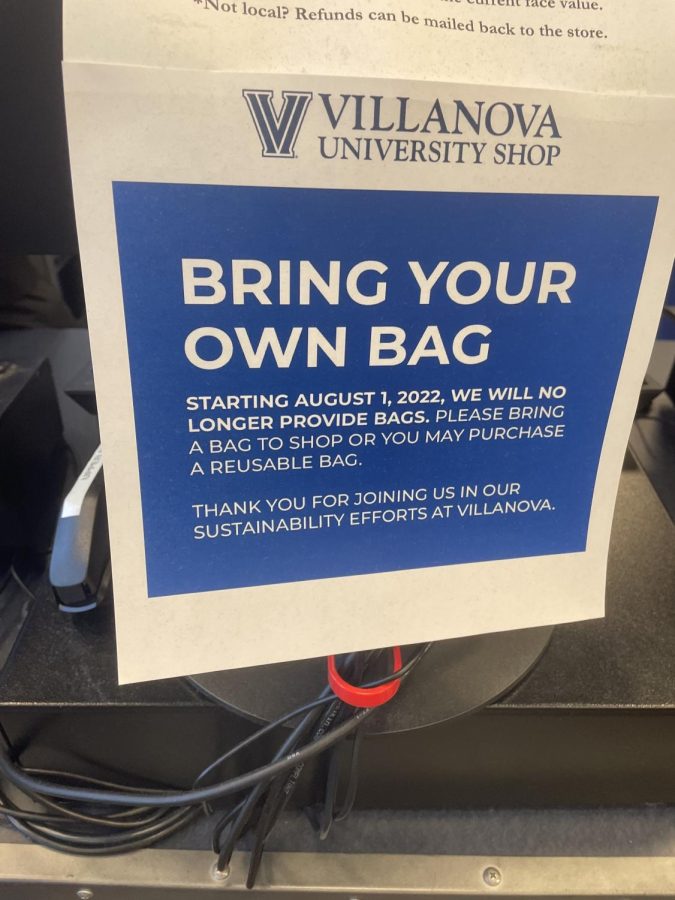REED: Radnor Township Says Goodbye to Plastic Bags
The Radnor Board of Commissioners banned single-used plastic bags in Radnor Township.
September 7, 2022
According to a press release from PennEnvironment, “a statewide citizen-based non-profit environmental advocacy organization working to promote clean air, clean water, and protect our open spaces,” the Radnor Board of Commissioners passed Ordinance 2022-11 on Aug. 15, which bans single-use plastic bags in Radnor Township. The passing of this ban will have a large impact on the community, as Radnor is estimated to use about 12 million single-use plastic bags annually.
“That’s a lot of plastic we are keeping out of the environment,” Faran Savitz, a Zero Waste Advocate for PennEnvironment, said in a press release, referencing the nearly 66 tons of plastic that will be eliminated. “From that perspective, it’s a win.”
In the press release, Savitz further detailed the significance of this legislation and the harm that plastic poses to the environment.
“Plastic bags are the poster child for the environmental harm caused by single-use plastics,” he said. “Nothing we use for a few minutes, such as single-use plastic bags, should be allowed to litter our communities, pollute our environment and fill our landfills and incinerators for hundreds of years to come.”
Stores around Radnor—and of course, the University—have a six-month period before the ban goes into effect so that the businesses and their customers can adjust accordingly. In the meantime, there is still plenty of work to be done.
“Hopefully in the future we can get rid of other single-use plastic items,” Savitz said. “There are things we can all do to reduce our plastic waste.”
For example, Savitz mentioned targeting the usage of plastic straws and utensils (which many municipalities have already done, either banning them entirely or implementing straw-on-request policies), plastic water bottles and polystyrene containers.
Additionally, Savitz remarked that the next major step would be to have a statewide ban on single-use plastic bags, following the lead of states like New Jersey, adding that it should not take a formal ban for us to look more critically at our plastic usage.
“There are many things businesses can do voluntarily,” Savitz said. “Hopefully we don’t always need legislation to do it, but sometimes that is the case.”
Savitz also had a powerful message to share with students—or really anyone—who is looking to be more sustainable and reduce plastic waste.
“If students are interested in getting involved and helping to reduce plastic waste in their community, be vocal about it and talk to your leaders, not just on your campus but in your community,” Savitz said. “Let them know what issues you care about and let your voice be heard. Your voice has power; you can use it.”
He further emphasized that even making small changes can have a ripple effect in one’s lifestyle choices.
“Try and use reusable alternatives in every part of your lives,” Savitz said, mentioning examples such as bringing reusable bags to grocery stores or mugs to coffee shops. “When you start making switches, you start to see other ways you can make change.”
Savitz also encourages students to shop locally, buy things in bulk and go to zero waste stores.
Many students on campus have already adopted these strategies, and the Student Sustainability Committee (SSC) at the University is hard at work to increase awareness about these issues and implement changes on campus.
Junior Fiona Lonergan is a member of SSC, specifically working with the Food Group. She offered her praise for the ban passed by Radnor and the positive impacts it will have.
“I think it’s a great thing because it’s showing that the local community is being progressive toward environmental change,” Lonergan said. “I think it’s necessary, as we can’t keep going down the trajectory that we are. Nothing can be done without change.”
Like Savitz, Lonergan also discussed how the ban will help people be more aware of the changes they can make in their own lives, as they will have to adapt to this new legislation and choose what to do going forward.
“Now, it’s on to bigger steps to reducing our plastic waste and doing more than just recycling,” Lonergan said. “[We’re putting an] emphasis on learning to refuse,” as in refusing to comply with practices that hurt the environment and, consequently, ourselves in the long run.
Lonergan provided a plethora of resources that students may not be aware of but can help them to adopt more sustainable lifestyle choices. For instance, students can get locally made bread delivered to Rosie’s, and they can get produce from local farmers delivered to St. Mary’s. They can bring compost to MOM’s Organic Market in Bryn Mawr, which also accepts items such as denim, batteries and old technology people are looking to get rid of. SHIFT on the Main Line is also a great place to shop for environmentally friendly, zero waste products.
“You can make a difference by being aware and wanting to learn to change,” Lonergan said. “Radnor is a perfect example.”
College is a time when students are always absorbing new information and learning about what kind of life they want to live. This, as Lonergan pointed out, offers a lot of teaching opportunities for sustainable living, especially on the heels of this legislation. If one is looking for more information about what they can do to be more eco-friendly and get more involved, they can check out SSC’s website and its Instagram, to learn about any upcoming events.












